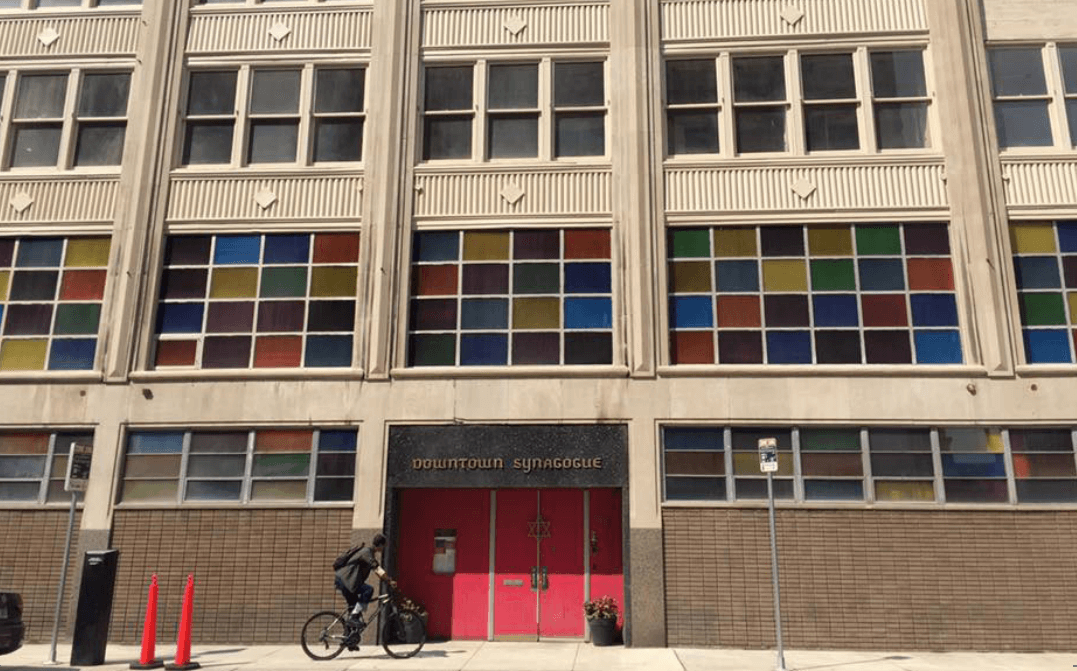Detroit’s only free-standing synagogue reopens
Isaac Agree Downtown Synagogue reopens, another sign of the city’s comeback

Graphic by Angelie Zaslavsky
Detroit’s only free-standing synagogue has reopened after a massive renovation.
The first service at the Isaac Agree Downtown Synagogue since 2020 was scheduled for Friday, Aug. 25.
The synagogue was once one of at least 40 in Detroit before a mass midcentury exodus of city residents to the suburbs.
The city has undergone a transformative reverse migration in the last decade, with new businesses and apartment complexes, a new workforce of young professionals, and the repopulation of some of its once-deserted neighborhoods.
“I like to say we’re a 101-year-old startup,” Rabbi Ariana Silverman told Bridge Detroit. “While the actual renovation itself has been a project of the last 15 years or so, the dreaming about how you bridge keeping a community in this traditional space and also building for the future is not new. One of the things we’ve realized is that we’re not done yet.”
She added: “My spouse and I moved to Detroit in 2010, and when we did I was the only rabbi living in Detroit, which I did not realize would be the case when we moved here.”
The renovation plan included new air conditioning and elevator service, and a refurbished sanctuary, social hall, catering area and office space. A project to create a rooftop space for weddings and other events remains on the drawing board.
Isaac Agree was founded in 1921 by Nathan and Charles Agree as a nonprofit family charitable association in honor of their father Isaac, a Russian émigré who came to Detroit in 1904.
The congregation moved to its current downtown home, the landmarked Griswold building, in 1964. The synagogue is known for its colorful stained-glass windows.
Silverman has led the synagogue since 2016, and the congregation has grown from fewer than 100 households a decade ago to 425, with a robust enrollment of kids in the temple’s religious school.


















